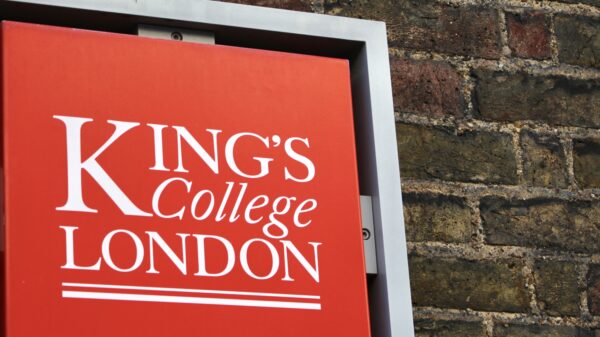Associate Editor Rayhan Hussain addresses the crisis in British higher education, calling for fewer university places, proper funding, restored maintenance support, and a renewed focus on merit over bureaucracy.
This article was first published in print on 22 September 2025.
Life as a student in Britain is no longer a rite of passage. It is a grind. Rising costs of rent bite, the maintenance loan lags, lectures shrink into the background as part-time jobs take over. The promise of university as an engine of mobility has curdled into a system that often feels bloated, misdirected, and indifferent to those actually footing the bill.
This is not a generic “young people have it tough” lament. It is a call to reset.
It has long been a view of mine that we should send fewer people to university and fund those places properly. Tuition fees should be indexed to inflation while cutting bureaucracy to protect teaching. And we should restore meritocracy as the fundamental principle for opportunity. If that sounds contentious, good. It is the only honest route if we want to restore quality and fairness back into our education system.
Walk through any of our campuses in London and you can feel the squeeze. Students are working longer hours in term time simply to stay afloat. This year’s Higher Education Policy Institute (HEPI) survey shows 68% of full-time undergraduates now hold a paid job during term, up sharply from under half three years ago. One in ten are working 20 hours a week or more. If you wonder why independent study is slipping and student experience is in freefall, look there.
Against that backdrop, here is the unfashionable truth. We send far too many young people to university. Tony Blair’s policy back in 1999 to send over 50% of our youth to university became a status metric. We hit that ambition and passed it years ago. Put simply, mass university education without proper investment and merit corrodes quality, entrenches resentment, and dilutes the value of a degree for those who would truly benefit from one.
I am not arguing to hoard privilege. I am arguing for honesty. A significant share of undergraduates now say that, with hindsight, they would have chosen a different route outside higher education entirely. That figure almost doubled to 11% this year. What does it say about our post-18 system when so many would take an alternative route altogether if offered it again?
We need a fundamental re-think of how we approach higher education. Fewer people at university and better funding mechanisms once there. Making apprenticeships and technical tracks not the consolation prize but a premium path. The goal is a smaller, stronger university sector alongside a far bigger skills system. That is how you rebuild mobility without writing cheques that bounce. And let’s not get started on the debt that would be avoided entirely for millions of would-be students.
When it comes to funding, we have been operating in a silo for far longer than I can remember. It is time to fund teaching properly and stop pretending that we can freeze the price forever without freezing quality. Fees in England were capped at £9,250 for years. From this September, they rise to £9,535 in line with inflation, and it is a welcome step that ministers are weighing the possibility of further annual increases.
They should be honest about what stands behind that: either students pay a bit more each year, or the education they receive will quietly thin out – as many of us have already started to notice. As the Vice-Chancellor of King’s told this paper in an interview, annual increases of tuition fees in line with inflation remains the best offer. If every other area of the British economy has experienced the strain of the cost-of-living squeeze and high inflation, then the education sector cannot be exempt from that. The Vice-Chancellor is absolutely right to call for realism.
Yet raising the cap is only half of the settlement. The other half is discipline. Universities across the board must cut administrative bloat and push money to the front line where it actually matters. Across the sector, professional services have swollen across the past decade while providers plead poverty. Students do not want more middle management. They want contact hours, assessment feedback that arrives on time, and services that are available when they need them. It is frankly ridiculous that the number of non-academic staff employed by this university has overtaken the number of academic staff for the first time – as services show zero signs of improvement.
Maintenance is the third rail, and arguably the most urgent. In real terms, support for the poorest students has been cut. The Institute for Fiscal Studies (IFS) calculates that by 2025–26, the maximum maintenance entitlement for low-income students will be about 10% lower in purchasing power than in 2020, roughly £1,125 down. This is why we are seeing such dramatic shifts in commuting from home or stacking those extra few shifts during semester. If we are serious about access, maintenance must be overhauled from first principles.
What about merit? Consider the Civil Service. In August, the government announced its revamped Summer Internship Programme will be limited to applicants from lower socio-economic background, with places and eligibility defined by parental occupation at 14. I do not for one second doubt the intention, but such schemes that badge people by background and hand out opportunities by category are fundamentally flawed. Every student deserves a fair shot, judged on talent, graft, and potential. It is time to bring back meritocracy.
At King’s, the pressures are all too visible. Housing is tight, demand for mental health support is high, industrial action has disrupted teaching, and fees for international students rise to cross-subsidise frozen home income. I don’t blame students for feeling short-changed. I blame the comforting fiction that we can keep widening the funnel while refusing to fund what comes out the other end.
Here is the optimistic bit. Britain still has universities that are world-class. We can keep them that way if we change course now.
Start by telling the truth to sixth formers. University is great for some, but it is not a panacea. Apprenticeships can be faster, cheaper, and better in the long run for many careers. We must first fix the funding model – indexing the fee cap to inflation transparently, restoring maintenance to realistic levels, and requiring providers to publish a simple ratio showing how much each pound goes to teaching, research, and administration. Tying any future fee rises to demonstrable cuts in bureaucracy and improvements in student outcomes would also go a long way.
Universities and other public bodies must also champion merit. We need to get out of this unhealthy checkbox mindset. Recruit and reward on performance, character, and potential, and widen the routes by which those qualities are recognised.
If we do not choose that path, some of the best and brightest students will keep voting with their feet. Many already wish they had. So why pretend otherwise?
Rayhan Hussain is the Associate Editor at Roar News, having been the paper’s Comment Editor and Staff Writer between 2023 and 2025. During that time, he studied Politics at King’s College London and is currently undertaking an MA in Government Studies at King’s. Rayhan has also gained experience with The Times and The Telegraph - and recently interned at Edelman, the world's largest communication firm. At Roar, Rayhan has reported on high-profile campus stories, shaped student discourse through his editorial work, and moderated events with prominent journalists.

















